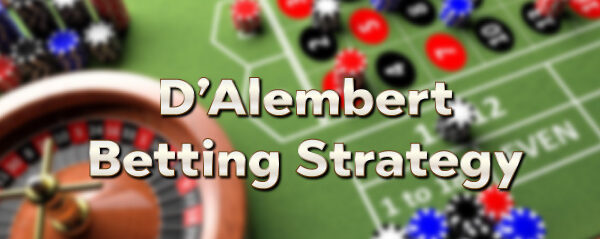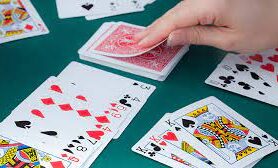Deployment strategy d’Alembert: how does it work?

As roulette began to gain more and more players, more and more people would devise systems to beat the house. The rise of the roulette game began in the 19th century and few things were as satisfying as beating the roulette wheel. So it was that the negative progression system found its way into the casino.
The mathematician Jean Le Rond d’Alembert was the creator of the system that would also receive his name: the d’Alembert system, and it won’t surprise you to learn that this mathematician himself came from France. But what is remarkable is to see how simple this system is.
Table of Contents
When a mathematician throws himself into roulette
He began his career in mathematics as early as 1739 and d’Alembert would become most famous for his work on the so-called partial differential equation. The idea behind this was that all numbers in the roulette game should fall the same number of times in the long run. The Frenchman also stated that after a win, a loss was very likely. This would cause the mathematician to come up with a striking piece of advice: after a win, you should lower your bet and after a loss, you should increase it. This way, as a gambler, you play into the law of probabilities.

How does the d’Alembert betting strategy work?
While we are naturally inclined to stick to even bets or slow down after a losing streak, the French mathematical genius argued that you should do just the opposite. The first bet in this case depends on personal preferences and the available budget, but it is advisable not to start too high. The consequence of the d’Alembert system should be that it oscillates up and down for a while, but after a while you should end up back at your initial bet. The special thing about this system is that you then have a profit, even though you have won as often as you have lost. We explain.
An example
For the sake of convenience, let’s assume that you start with an initial bet of €1.
- Round 1: €1 on black. The ball lands on red, you lose and increase the bet.
- Round 2: £2 on black. The ball lands on red again, you lose and increase your bet.
- Round 3: $3 on black. The ball lands on black, you win and lower your bet.
- Round 4: $2 on black. The ball lands on black, you win and lower your bet.
- Round 5: $1 on black. The ball lands on red, you lose and increase your bet.
- Round 6: $2 on black. The ball lands on black and you win.
After six rounds you have lost €4 (round 1, round 2, round 5) and won €7 (round 3, round 4, round 6). Your final profit with the d’Alembert bet strategy is therefore €3.
Whether it works?
The above example obviously gives cause for optimism, but be aware that you can also lose a great deal of money in a short space of time in this way. Jean le Rond d’Alembert once said that the results will balance, but in this case there is just a little problem. You don’t know when they will come to equilibrium. Mathematics may say one thing, but in the end games of chance have a will of their own. And that is one without memory and therefore without remorse.



